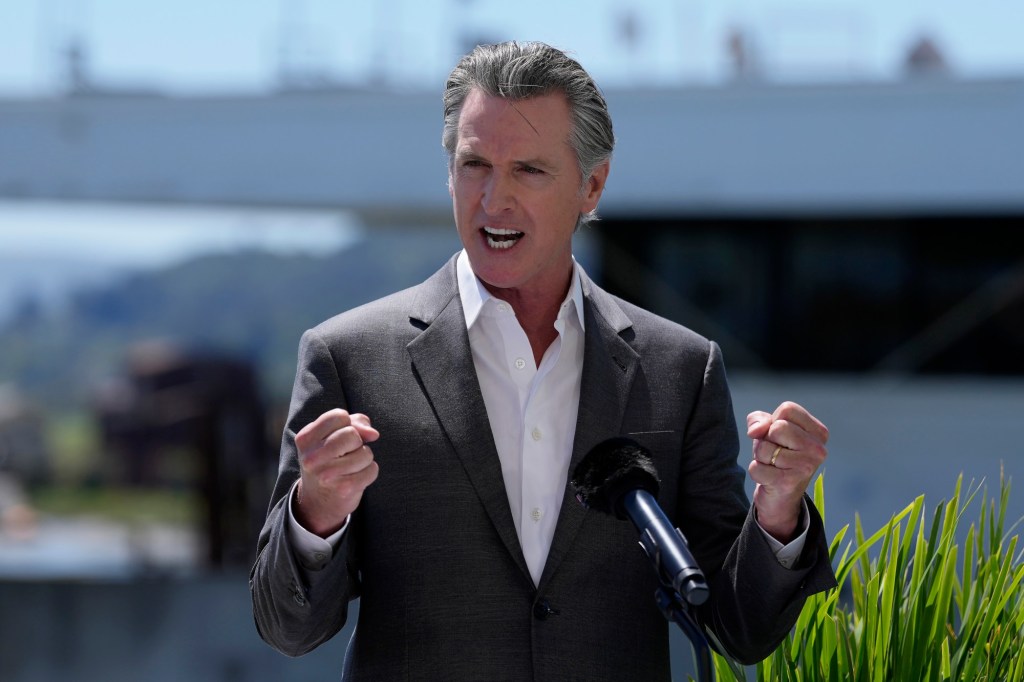
When the average driver in St. Louis, Orlando, or Des Moines goes to buy a new car, they would be forgiven for thinking they have a wide range of choices for their next automobile.
Whether they know it or not, the cars on local dealership lots had to pass several layers of fuel economy regulations, emissions testing, and safety rules designed and codified in Sacramento, rather than their own state capital.
Because of a peculiar provision of the Clean Air Act of 1970, known as Section 209(b), the state of California has a unique ability to apply stricter rules for environmental regulations on cars, trains, and virtually all forms of transport. All they need is a waiver from the Environmental Protection Agency.
During the Biden Administration, a waiver was issued to California for its plan to ban all gas-powered vehicles beginning in 2035, a regulation known as Advanced Clean Cars II. It became an effective electric vehicle mandate not just for California, but for most of America. Policies backed by the polarizing Governor Gavin Newsom have the widest ripple effect of any state executive in the country.
At present, 13 states have adopted California’s environmental rules over their own, which go beyond the EPA’s standards and impact everything from EV mandates to greenhouse gases and more.
Because California’s population remains the largest by a significant margin, companies that wish to sell products nationally are forced to adhere to the West Coast rules, colloquially known as the “California spillover effect”. Look no further than California’s Prop 65, requiring labels on ordinary products “known to the State of California to cause cancer” that most consumers around the country have learned to ignore.
Seeking to rectify this national power imbalance impacting consumers, several congressmen and senators in the GOP majority have introduced legislation to claw back national power from California’s wayward rules.
U.S. Rep. Kevin Kiley, once a formidable Republican Assembly member of the California Legislature and now a defiant congressman representing the eastern part of the state, has introduced the Congressional Review Act challenge to reverse California’s ban on gas-powered cars that became a de facto national EV mandate.
Rep. Kiley deserves some grace for being at the forefront of restoring choice to national consumers. He has led the way on introducing federal legislation to nullify some of the worst boondoggles of California governance, including not just the gas car ban, but also coastal commission reform to speed up project development, protecting the rights of workers who prefer to be contractors, and a law to rule out a federal bailout of the state’s overburdened and costly “high speed rail to nowhere” project. The latter of which Gov. Newsom has been facing renewed criticism from fellow liberals who are puzzled why California can’t seem to build anything innovative.
The American model of federalism devolves power to states to regulate most issues, but it does not empower one-party state legislatures to set standards and regulations for 330 million people across state lines.
Americans everywhere should be cheering on these sorts of efforts to restore the balance of power and expand choice for consumers.
There is no question that American consumers should buy and enjoy whatever type of vehicle they prefer, be it a gas-powered, diesel, or electric car. It all comes down to consumer preference. But questionable emissions mandates that favor only one specific energy source for the cars we drive are self-defeating, impractical, and ultimately harmful for consumers.
Californians are overall accepting of Gov. Newsom’s policies and the kind of restrictions being targeted by Congressman Kiley, but at no time did the rest of us agree to live and shop this way.
Yaël Ossowski is deputy director at the Consumer Choice Center
Originally Published:



